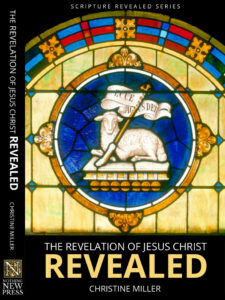Read Revelation 8 at Bible Gateway.
Revelation 8, The seventh seal
The first angel sounded: And hail and fire followed, mingled with blood, and they were thrown to the earth. And a third of the trees were burned up, and all green grass was burned up. Rev 8:7
These angels which blow the first four trumpets, I believe, are the angels who stood at the four corners of the earth, who were told to wait until the servants of the Lord were sealed in Rev 7:1-3. These angels were told not to harm the earth, the sea, or the trees until the sealing has been accomplished (Rev 7:3). The earth, sea, and trees, are exactly what is harmed by the first four trumpet judgments. Now that the sealing is over, the four judgments “on the earth or the sea or the trees” go forward.
Now just as the first four seals were linked in meaning and time in Rev 6, here the first four trumpets are linked in meaning and time. The first four trumpets taken together herald disasters which cumulatively strike one- third of the earth, which, as we learned previously, is one- third of the civilized, inhabited world; that is, one- third of the Roman Empire. The trumpets strike 1) the land and vegetation (vs. 7), 2) the sea and shipping (vs. 8-9), 3) the rivers and fountains (vs 10-11), and 4) the light of the sun, moon, and stars (vs. 12).
Traditionally, the Church has connected these first four trumpets with the barbarian invasions on Rome, which brought about its fall. So let’s begin looking at history at 380 AD, the time of the end of the sixth seal. It just so happens that in 378 AD the Romans fought the battle of Hadrianople against the Goths, a German tribe. The Goths at this time were being pushed across the border of the Empire from their home on the Danube river by the Huns on their east:
“Here … a great battle was fought at Adrianople in 378 in which the Goths defeated and slew the Roman emperor, Valens. The Germans had now not only broken through the boundaries of the Empire but also learned that they could defeat the troops on which the Empire relied for protection. The battle of Adrianople may therefore be said to mark the beginning of the conquest of the western part of the Empire by the Germans.
“Among the Germans … was Alaric [who] collected an army, of which his countrymen, the West Goths, formed a large part, set out for Italy, and finally decided to march on Rome itself. The Eternal City fell into his hands in 410 and was plundered by his followers. Although Alaric did not destroy the city … the fact that Rome had fallen into the hands of an invading army seemed a terrible disaster. The pagans explained it on the grounds that the old gods were angry because so many people had deserted them and become Christians. St. Augustine, in his famous book The City of God, proved [the pagan assertion false].”
— James Breasted, History of Europe, Ancient and Medieval, pages 277-278.
Interestingly enough, it was Alaric’s policy to burn orchards and vineyards, fill cultivated fields with stones, and destroy agriculture. Thus in 378 there was an earthquake, when at the battle of Hadrianople, for the first time a Roman army was completely defeated by an invader inside the boundaries of the Empire. In order to understand the magnitude of this event, you have to realize that the Roman military machine had not suffered any significant defeat for 1000 years since its founding. It was the equivalent of the American or Israeli military of its day. The battle of Hadrianople also heralded the coming of the barbarians. Then in 410 ad, the first trumpet of judgment against Rome: the barbarian Alaric plundered the city, destroying agriculture as he went. Thus the vegetation in one- third of the Empire was burned up.
Revelation 8, The second trumpet
Revelation 8, The third trumpet
Revelation 8, The fourth trumpet
Revelation 8, The woes to come
Revelation 8, The division of the empire
Return to Revelation Index of Studies
Christine’s book The Revelation of Jesus Christ Revealed, based on these studies but greatly expanded, is now available from Nothing New Press. You may also be interested in reading the Book Extras and joining in on the Discussion.
As well, Revelation in Chiastic Structure is also available.

















Leave a Reply